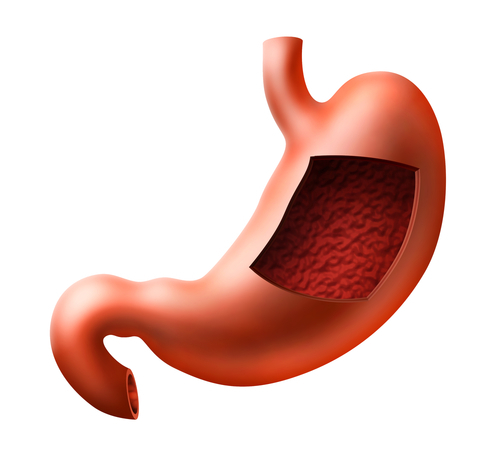6.4 The stomach
 The walls of your stomach are strong and muscular. When food reaches the stomach, these walls begin to mechanically mix the food and liquid with digestive stomach juices. The food is heated or allowed to cool down until it reaches a temperature of approximately 37 degrees.
The walls of your stomach are strong and muscular. When food reaches the stomach, these walls begin to mechanically mix the food and liquid with digestive stomach juices. The food is heated or allowed to cool down until it reaches a temperature of approximately 37 degrees.
Pepsin secreted from the mucosa is an enzyme that breaks down proteins. It requires heat and acidic conditions in our bodies. The stomach also contains hydrochloric acid, which creates an acidic environment. Only proteins are digested in the stomach, because amylase secreted in the mouth cannot function under acidic conditions. Fats are also not yet broken in the stomach. The food stays in the stomach from one to four hours.
The digestion of meat and fats in the digestive tract takes up the most time, as these foods remain in the stomach for the longest time. In contrast, carbohydrates are digested quickly. The stomach also serves as a food container, because it only allows small portions of food to pass through to the small intestine at a time.